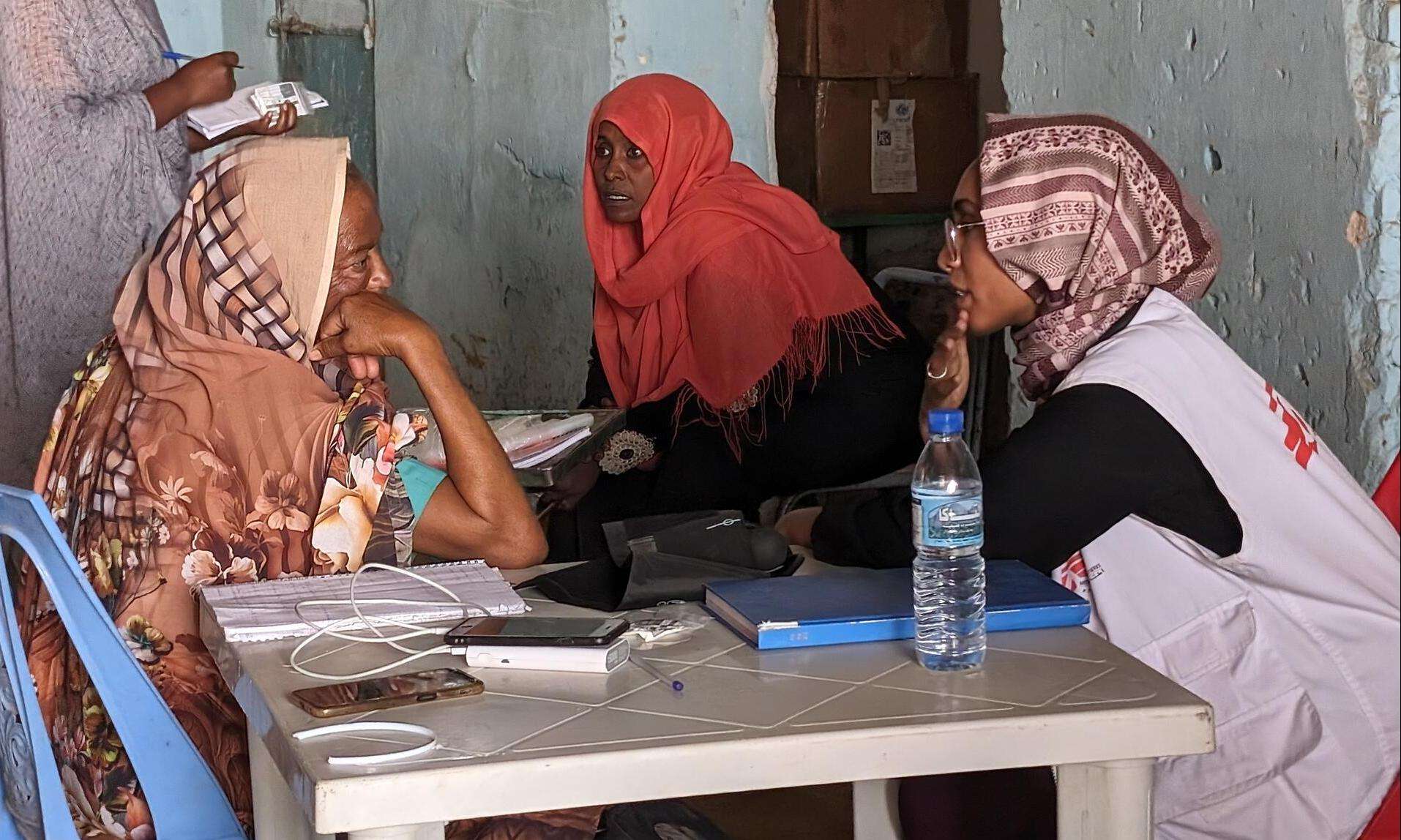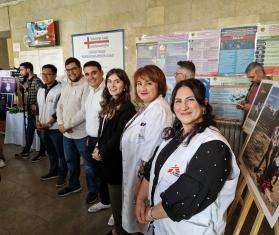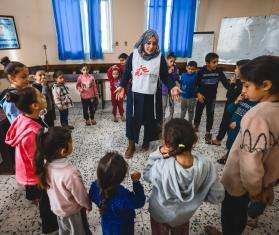Close to 190,000 people have been displaced in Sudan’s Kassala state, including 40,000 who recently fled violence in Al Jazeera state.
The living conditions of displaced people in Kassala are extremely dire, marked by overcrowded shelters, limited access to food and clean water, and inadequate health care services and access. The plight of internally displaced people in Kassala is emblematic of the broader humanitarian crisis in Sudan resulting from the ongoing brutal conflict, with many people experiencing widespread food insecurity as well as loss of life and livelihoods.
Doctors Without Borders/Médecins Sans Frontières (MSF) recently provided targeted medical and humanitarian aid in response to the acute emergency over a 10-week program that concluded on March 10.
MSF teams treated more than 2,100 patients for respiratory infections in the different gathering sites for displaced people in Kassala. Respiratory infections are a common morbidity in cold temperatures, but are made worse when people have no choice but to sleep in shelters that do not sufficiently protect them from the cold and wind.
Addressing looming health threats
The journey to Kassala was not easy to make, and many of those coming suffered displacement several times before reaching there.
Many displaced people rely on the generosity of host communities for necessities, heightening their vulnerability to disease and deprivation. The specter of cholera, typhoid, and dysentery looms large, threatening the health and well-being of displaced people.
The MSF intervention included the provision of primary health care services, sexual and reproductive health care, mental health care, and health promotion initiatives. Mobile clinics were also deployed to reach remote gathering sites, ensuring that people could access essential medical care.
MSF teams provided medical consultations as well as psychological first aid to displaced people who were affected by violence and were suffering from the conflict and multiple displacement experiences.
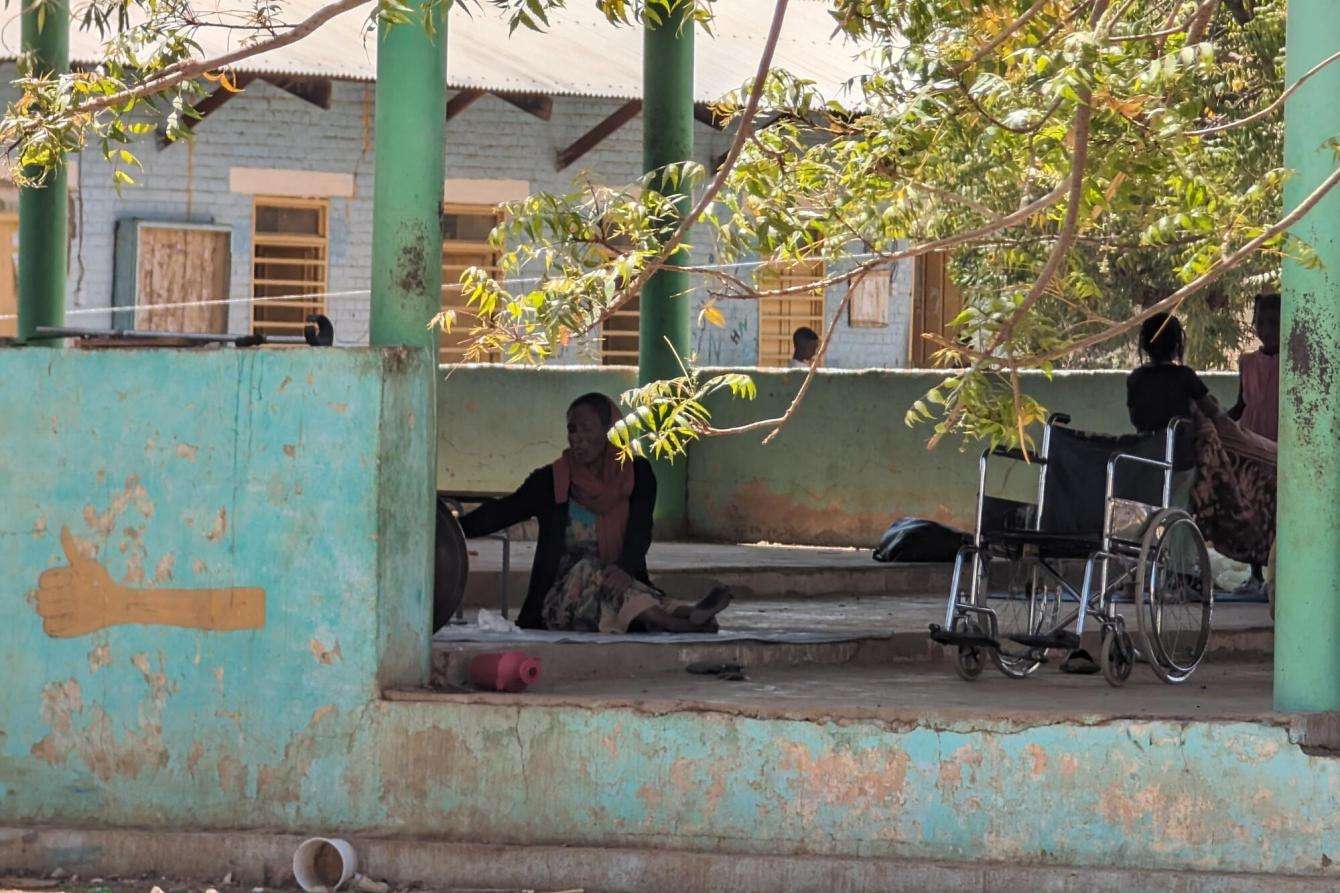
Significant challenges persist
“The soaring cost of medical services, particularly for women in need of reproductive health care, presents a formidable barrier to access,” says Claire San Filippo, MSF deputy head of mission in Sudan. “Furthermore, the protection of survivors of sexual and gender-based violence remains a pressing concern, with limited access to safe spaces and support services exacerbating their vulnerability.”
Access to treatment for non-communicable diseases such as hypertension and diabetes is severely compromised, further exacerbating the health crisis in Kassala. Almost 800 patients (13 percent of the overall number of outpatient consultations) were treated for chronic diseases by MSF teams during the 10-week emergency intervention. Furthermore, limited movement of supplies and inflated costs have rendered essential medications inaccessible for many.
Displaced person
Moana*
My name is Moana* from South Khartoum, I have 8 children and I am 48. The conflict started just after my husband passed away. When the heaviest shelling and shooting started in South Khartoum I was pushed out of my house. I took my family, and we decided to leave at night and take a boat that would bring us from Khartoum to Wad Madani. We had no money, no food, no water.
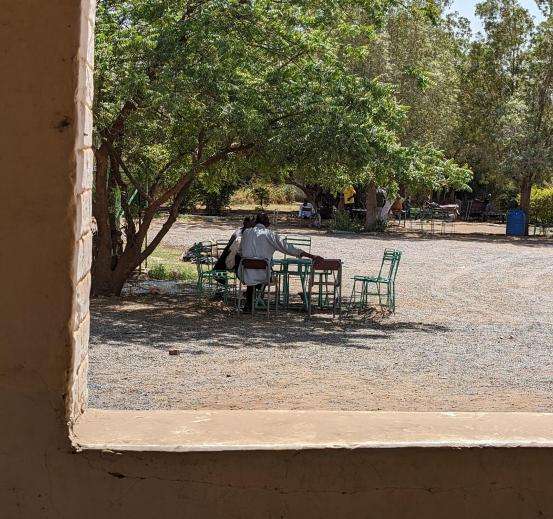
The need for expanded humanitarian efforts extends far beyond the confines of Kassala state. Urgent action is desperately needed across all of Sudan—in harder-to-reach areas like Darfur and Khartoum, but also in Eastern Sudan, where more access is possible but still only a trickle of assistance gets through, in proportion to the vast humanitarian needs. More assistance and stronger coordination between the few existing actors present is needed to ensure basic access to health care, food, clean water, and sanitation. These needs must be prioritized to alleviate the suffering of displaced communities and prevent further loss of life.
"The prolonged nature of the suffering people are currently enduring is astounding," said Matt Cowling, MSF humanitarian affairs manager. "It's remarkable how little attention Sudan receives, and how the experiences of its people are hidden from the world."
"The situation in Sudan is largely overlooked by the media," Cowling continued. "I believe this is primarily because journalists cannot enter the country and organizations are not vocal enough about what's happening there. We are facing coordination issues and a significantly underfunded response. Now, we have a situation where people are being displaced multiple times and the needs are enormous. Another grim aspect of this situation is within the RSF-controlled areas, where access is extremely limited. We are looking at severe acute food insecurity, which is a significant concern for the future as we're nearly one year into the conflict, and we still don't see any substantial progress or movement toward a peaceful resolution or an end to the conflict."
About our work in Sudan
In eastern Sudan MSF runs health facilities in Tanideba and Um Rakuba camps, serving refugees, internally displaced people, and local communities. In Blue Nile state, we support Ad-Damazine Teaching Hospital.
MSF teams work in 11 states across Sudan: Khartoum, Port Sudan, Al Jazeera, White Nile, Blue Nile, River Nile, Al Gedaref, West Darfur, North Darfur, Central Darfur, and South Darfur states. MSF teams are also providing assistance to refugees and returnees across Sudan’s borders in South Sudan and Chad. Learn more about our work in Sudan.
* Patients' names have been changed to protect their identity
